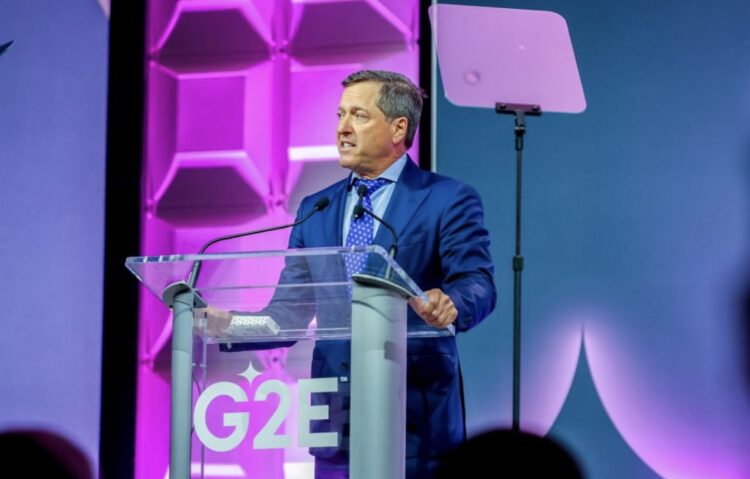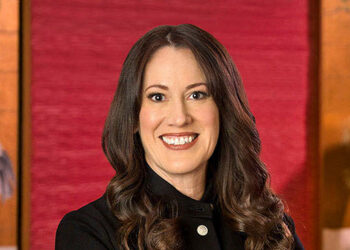The President and CEO of the American Gaming Association, Bill Miller, said his organization will succeed in having changes to the rules around gambling loss deductions contained within the recently passed Big Beautiful Bill Act repealed.
Delivering a Keynote Address on the first morning of the G2E exhibition in Las Vegas on Tuesday morning, where he also expressed his confidence in further increasing the tax threshold for the reporting of slot machine winnings, Miller acknowledged there were “pluses and minuses” for the industry within the Trump administration’s Big Beautiful Bill, which was signed into law on 4 July.
Of particular concern is a clause that will from 1 January 2026 limit the deductible amount of gambling loss deductions permitted under tax rules to 90% of their winnings – reduced from the current situation under which a taxpayer who itemizes can deduct gambling losses up to 100% of their gambling winnings in a tax year.
The change is significant because it means players who break even will be required to pay taxes on income they never actually generated – creating another potential headwind for the industry as a whole.
“We’re working to restore that 100% deduction,” Miller said on Tuesday. “And with the help of [Nevada Congresswoman Dana] Titus, [Nevada Senator Catherine] Cortez Masto and other bipartisan leaders in the House and the Senate, we’re going to get it done.”
Miller separately celebrated another provision contained in the Big Beautiful Bill that will see the tax threshold for declaring slot machine winnings rise from its current US$1,200 to US$2,000 although the AGA is pushing for a larger increase to US$5,000.
“We’re going to continue to work to get to that US$5,000 number,” he explained.
Miller also reiterated past comments regarding the threat posed to the regulated US gambling industry by the illegal market, be they offshore operators or the rapidly growing sweepstakes and sports events contracts sectors.
According to the AGA, Americans are gambling around US$674 billion annually with illegal operators – a fact the organization is pushing in its discussions with state leaders given that sports betting is currently legal in only 39 of the 50 states and iGaming in just seven.
“Today, new operators want to access our markets and our customers but many of them don’t want to play by the rules that made gaming what it is today,” Miller said. “Illegal operators want to [avoid] the regulation that all of us here abide by. They attempt to blur the lines by calling it games of chance investing or sweepstakes or skill games or sports event contracts – anything but what it really is, which is gambling.
“Why all this deception? It’s simple. They want the opportunity but they don’t want any of the regulatory compliance.
“Well, you can call it a sports event contract. You can call it a skill game. You can call it a sweepstake. You can call it whatever you want but it’s still gambling. And if it’s gambling, it needs to play by the rules that uphold state and tribal sovereignty. Those rules matter.”
G2E runs from 7 to 9 October at The Venetian Expo in Las Vegas.



































